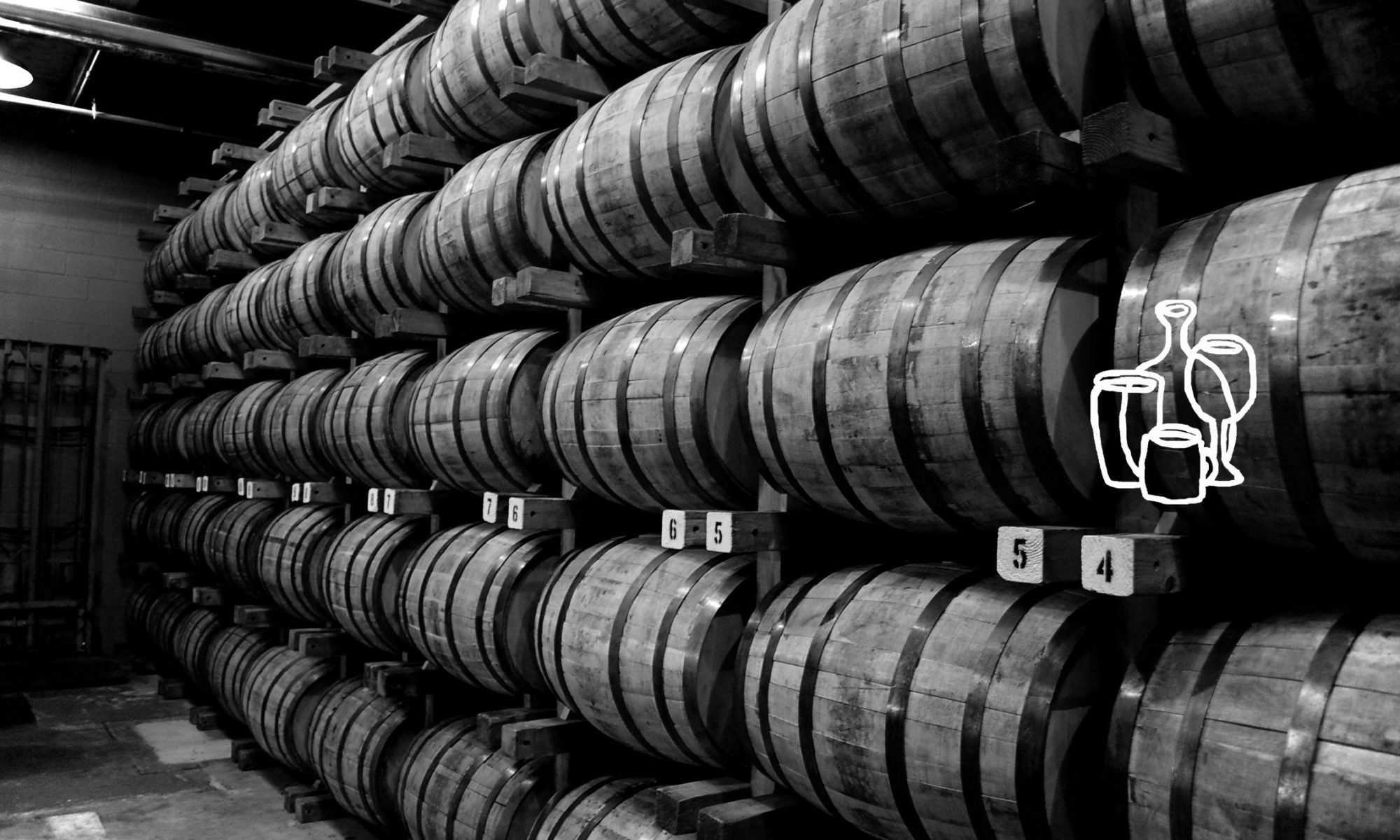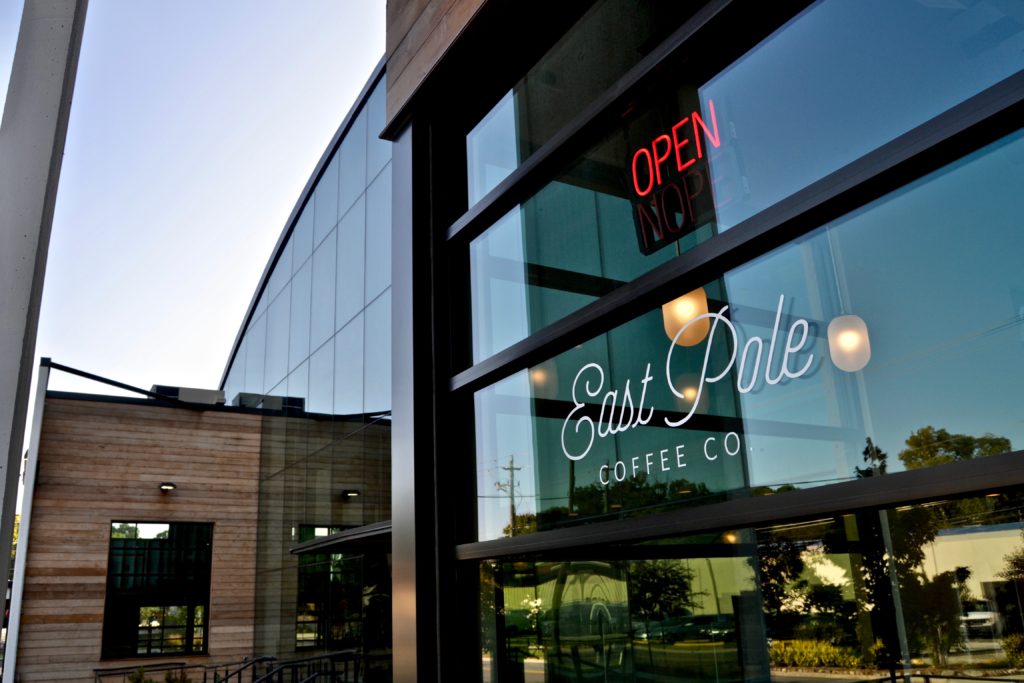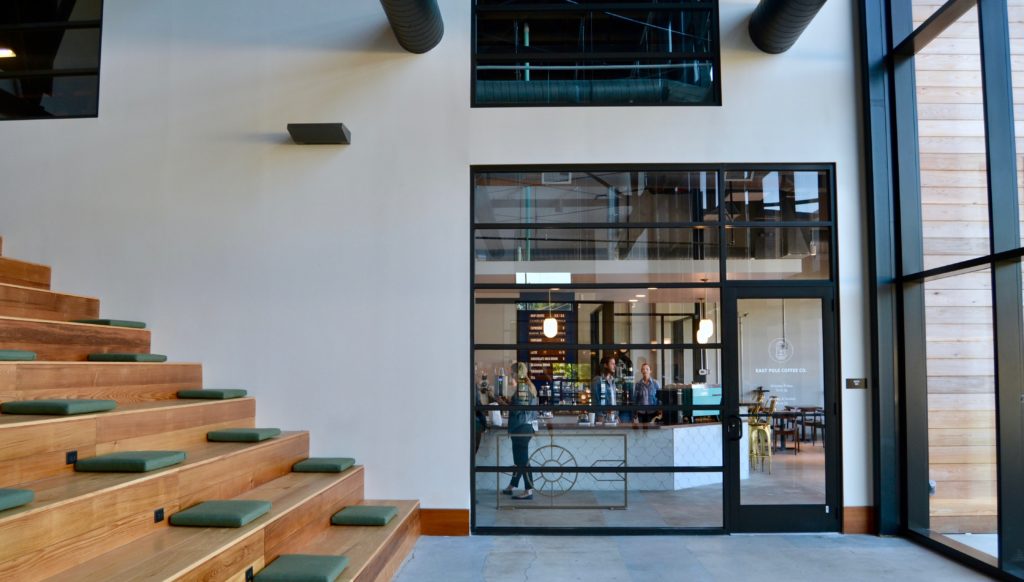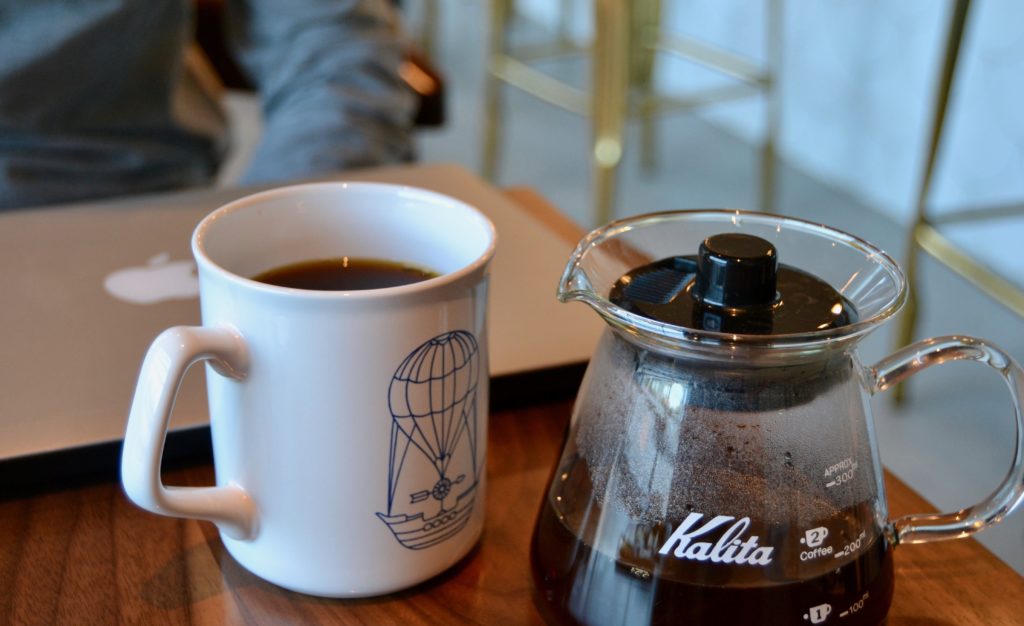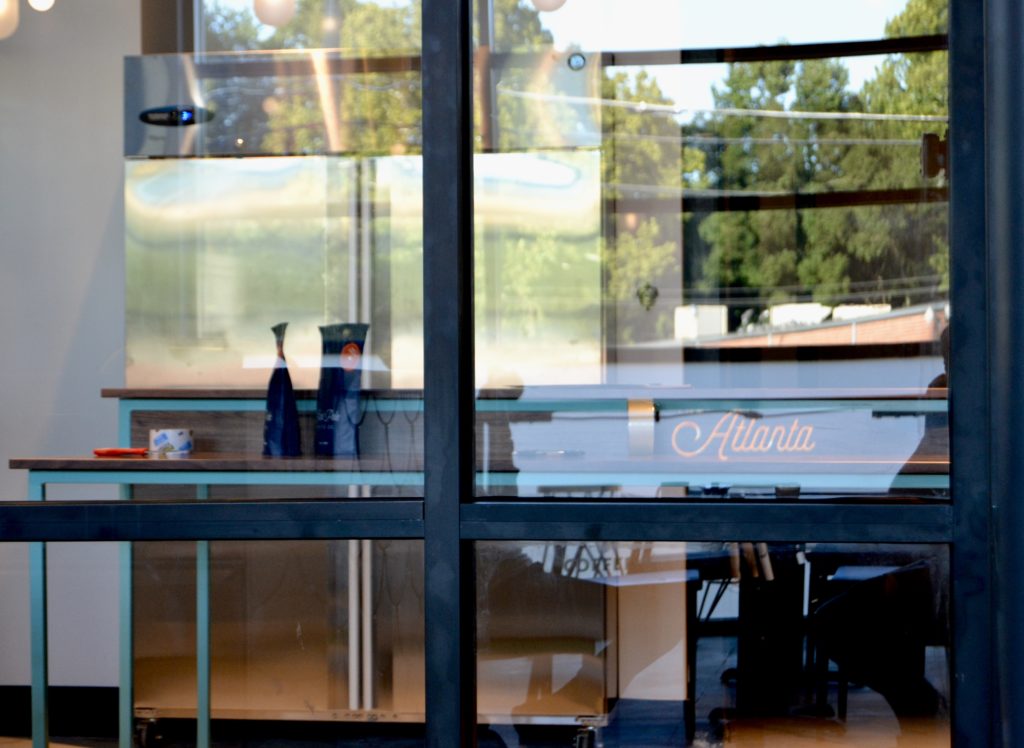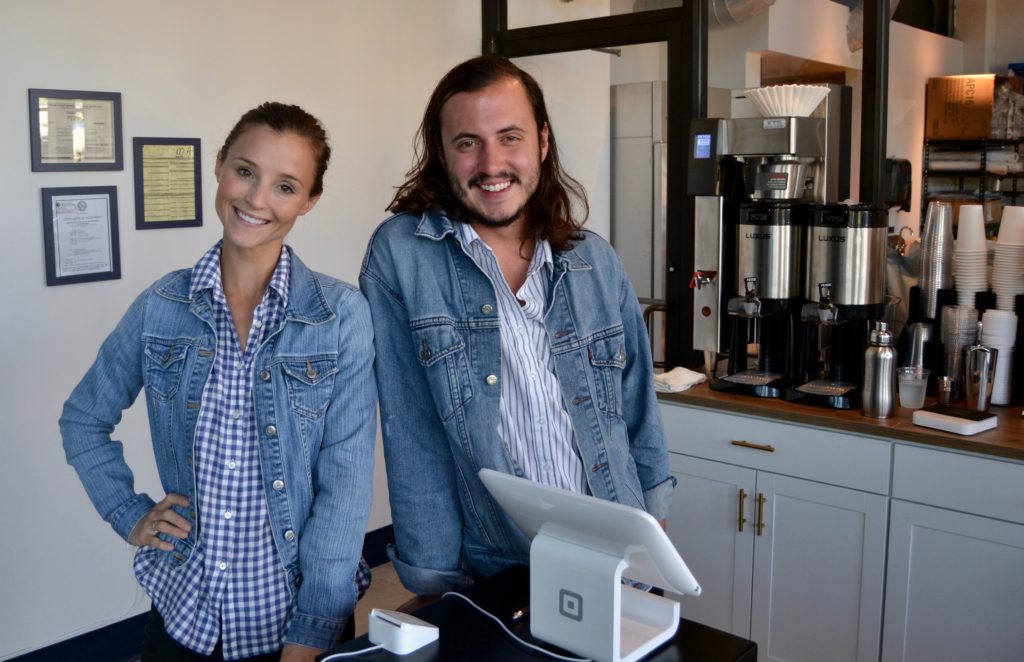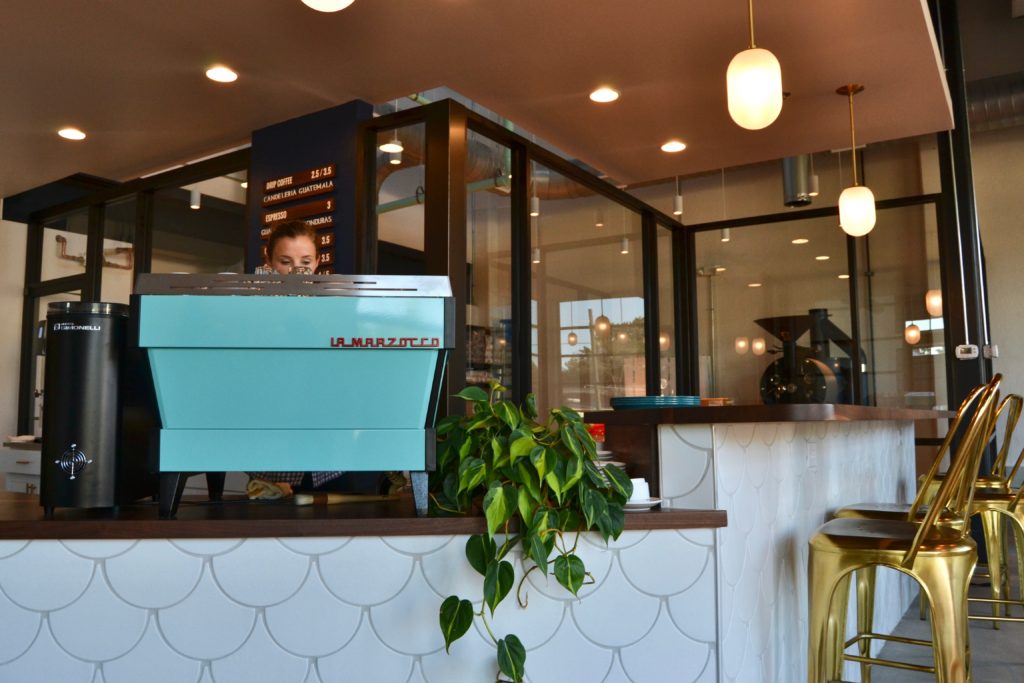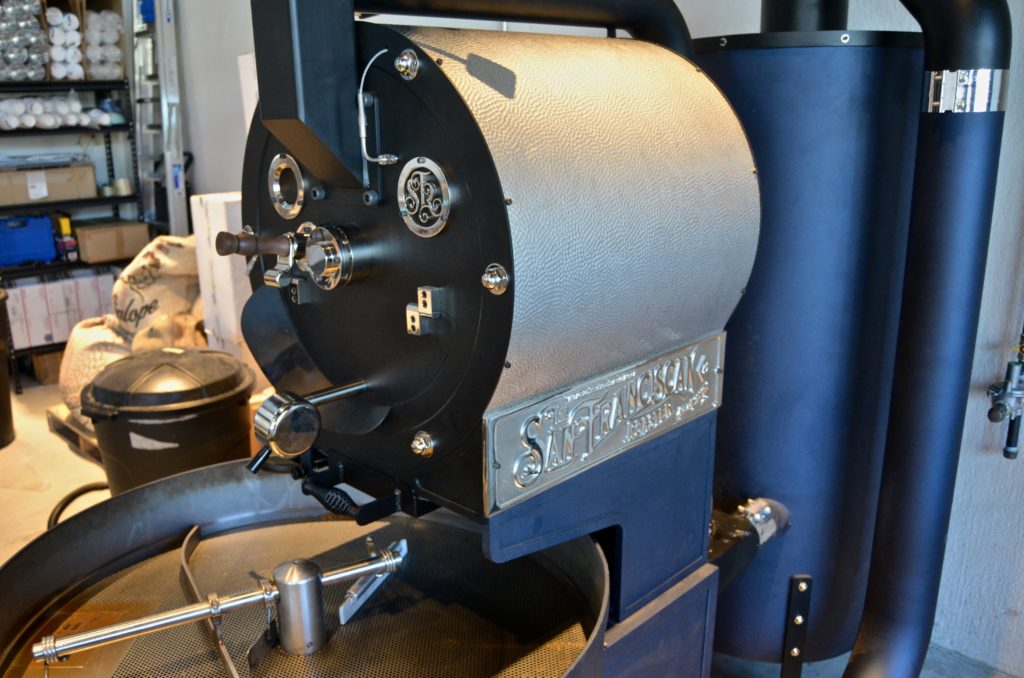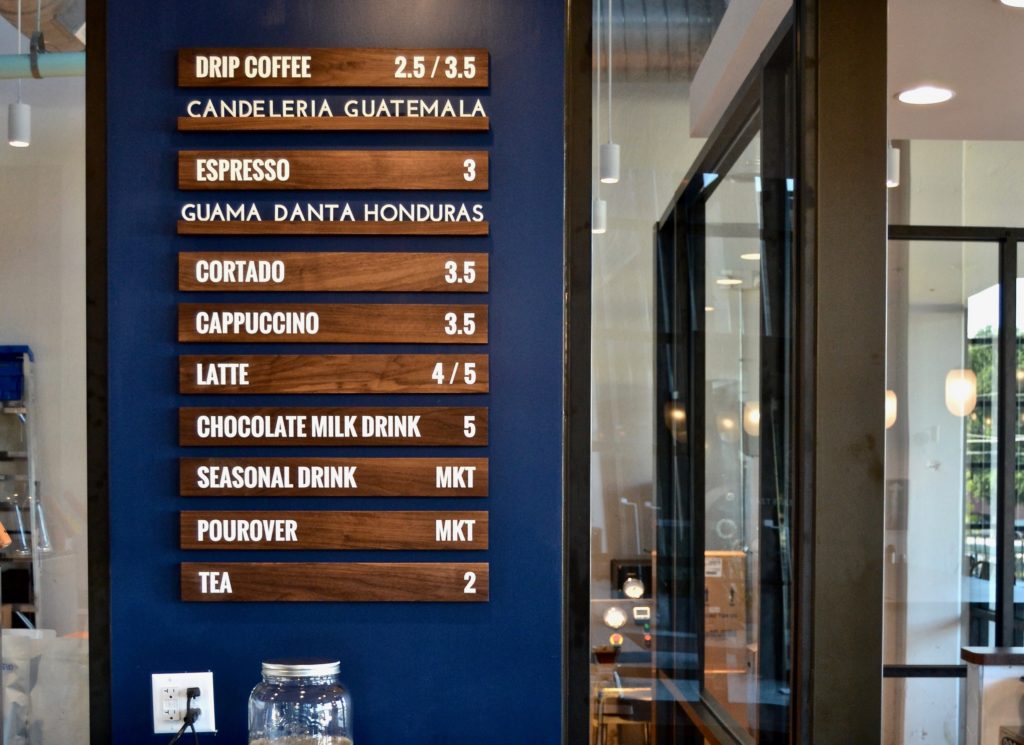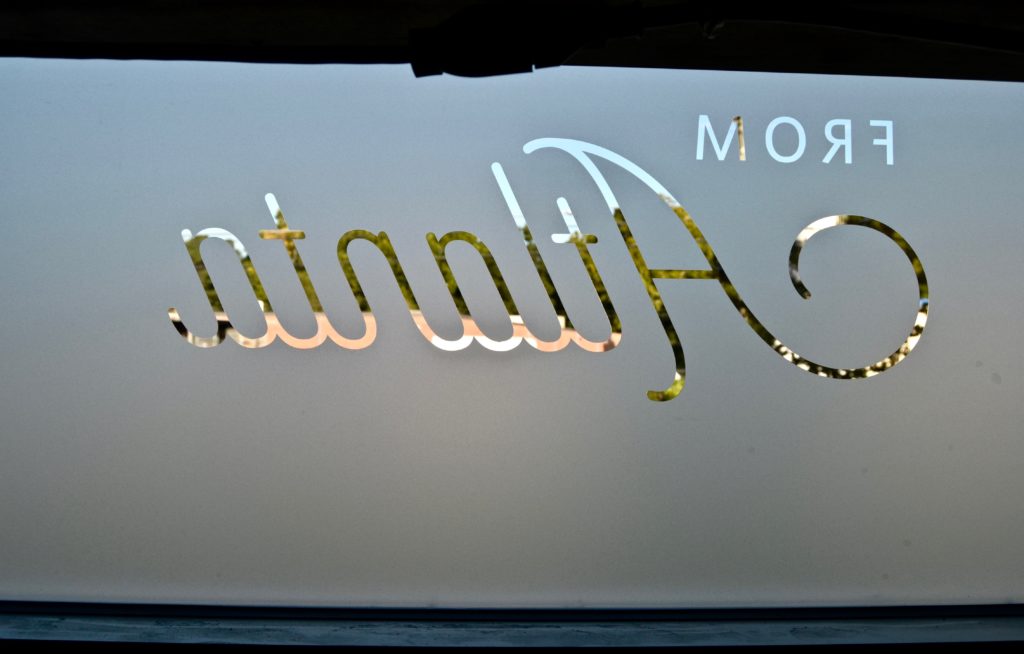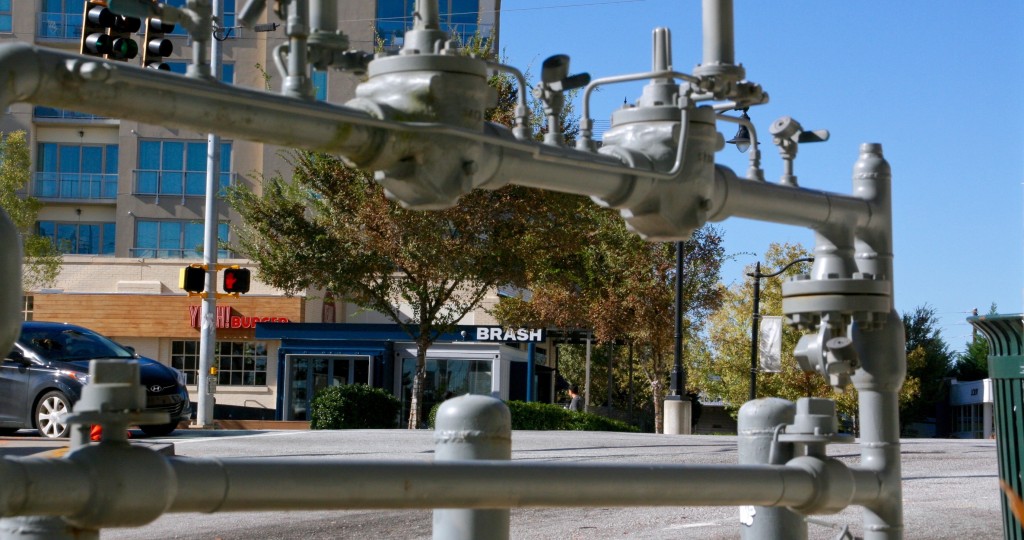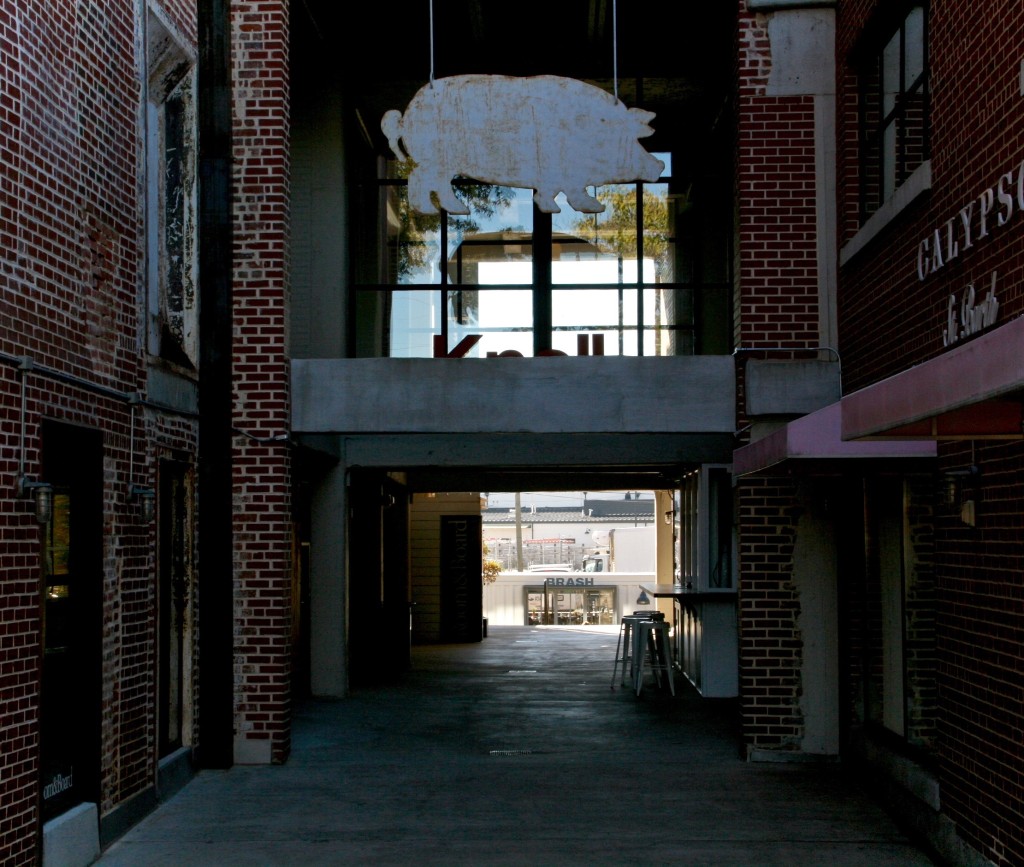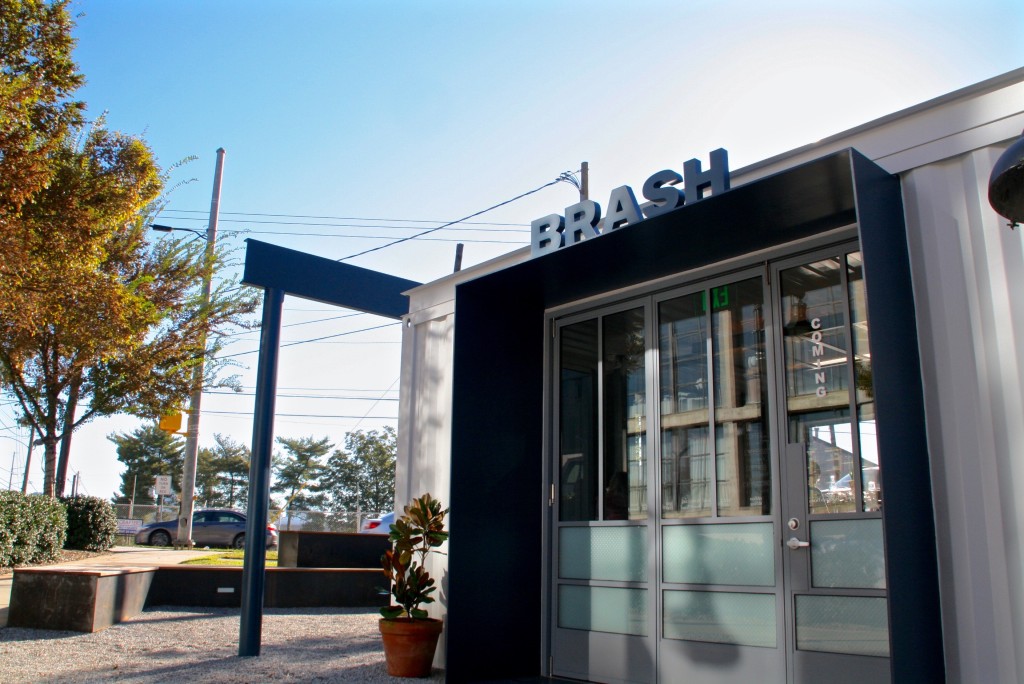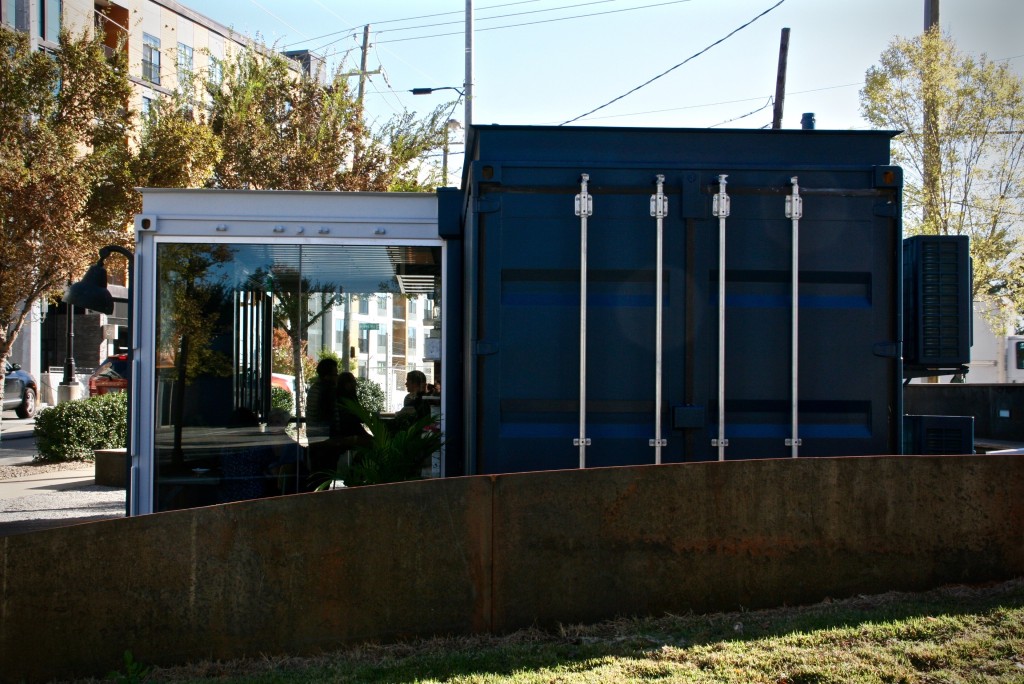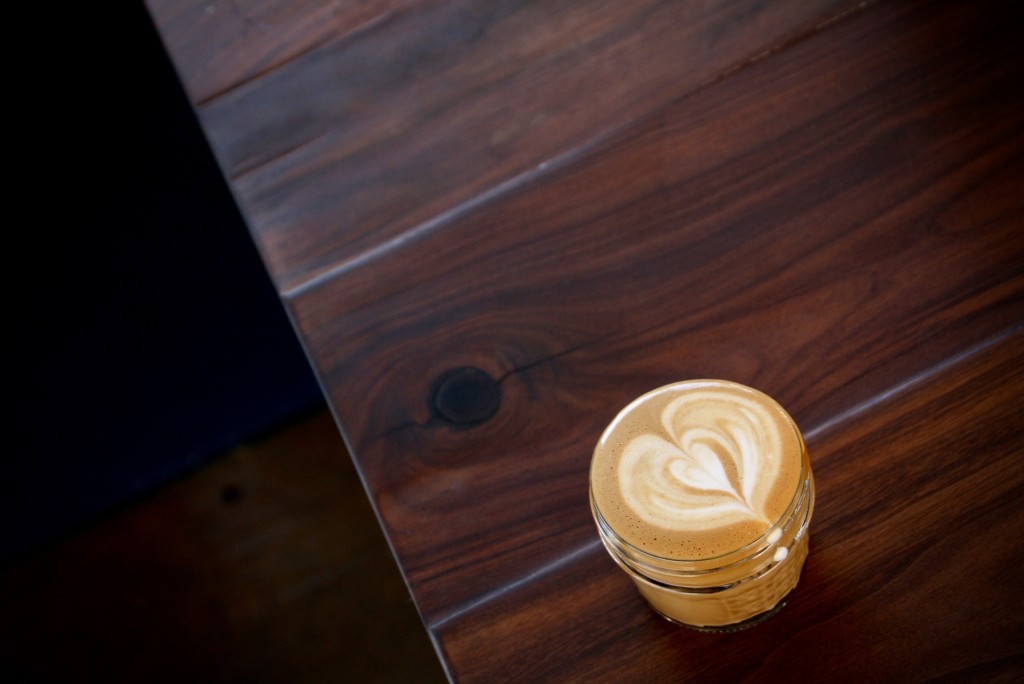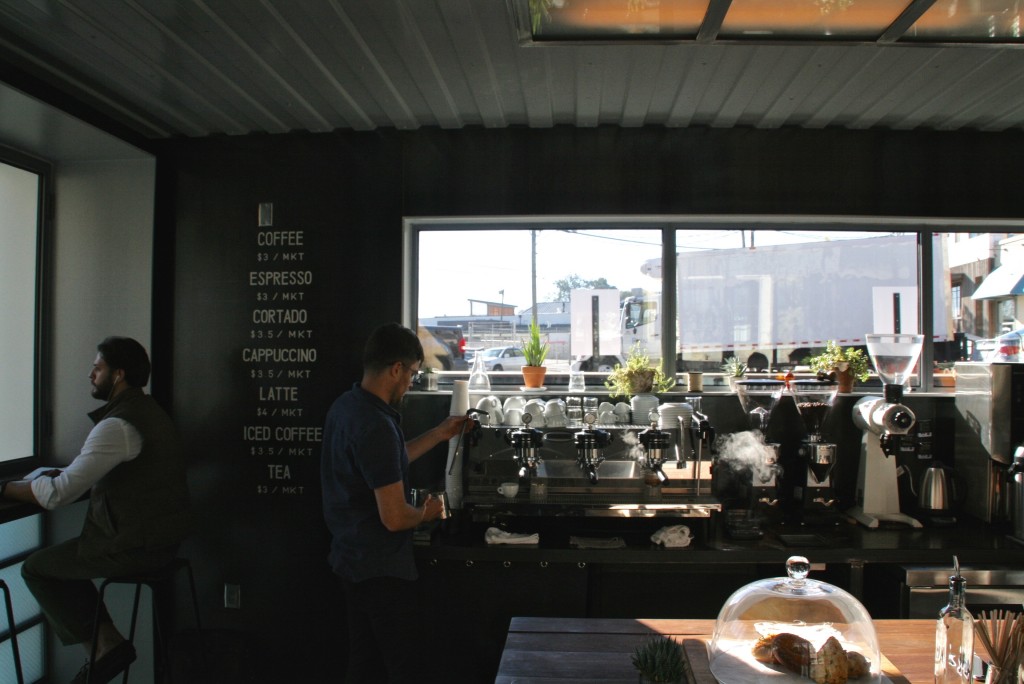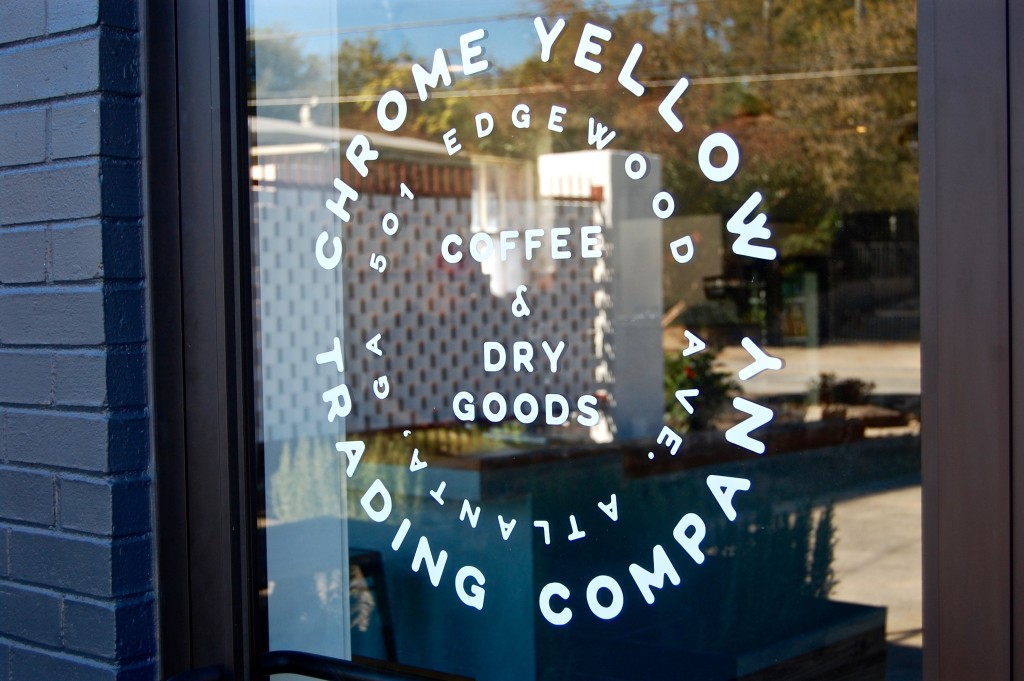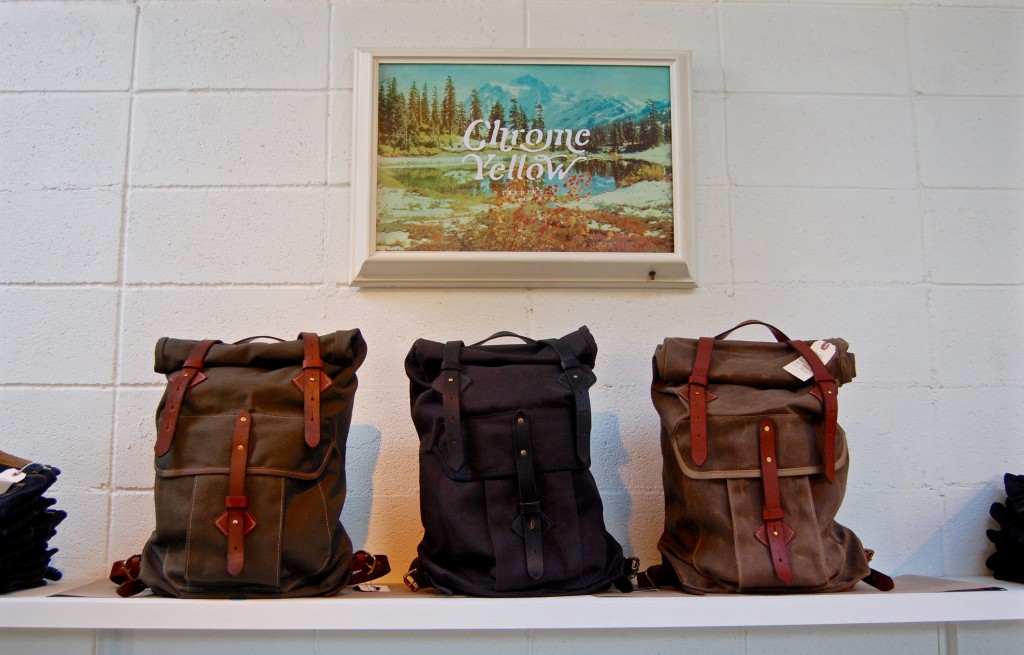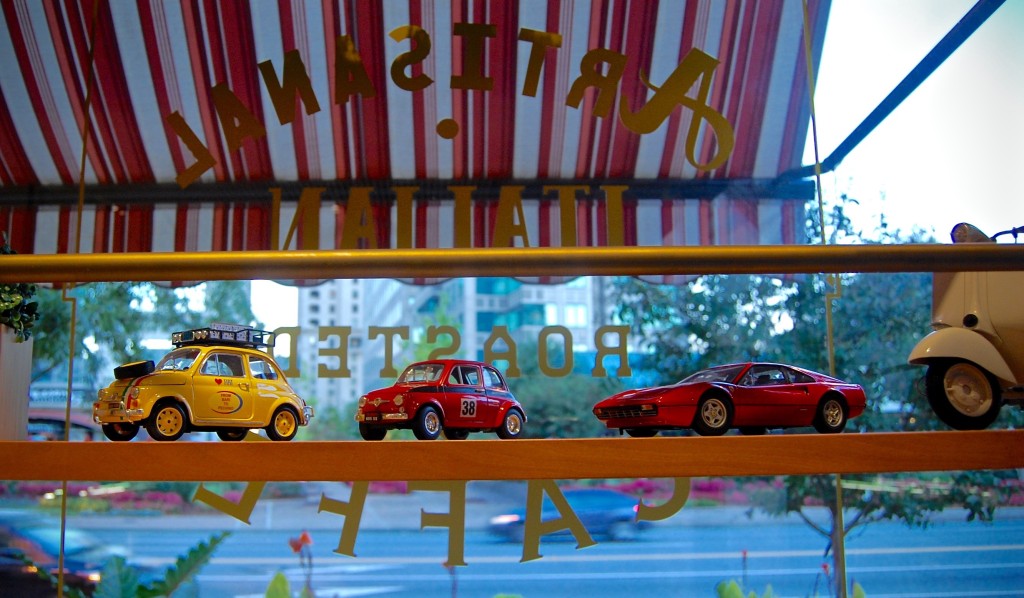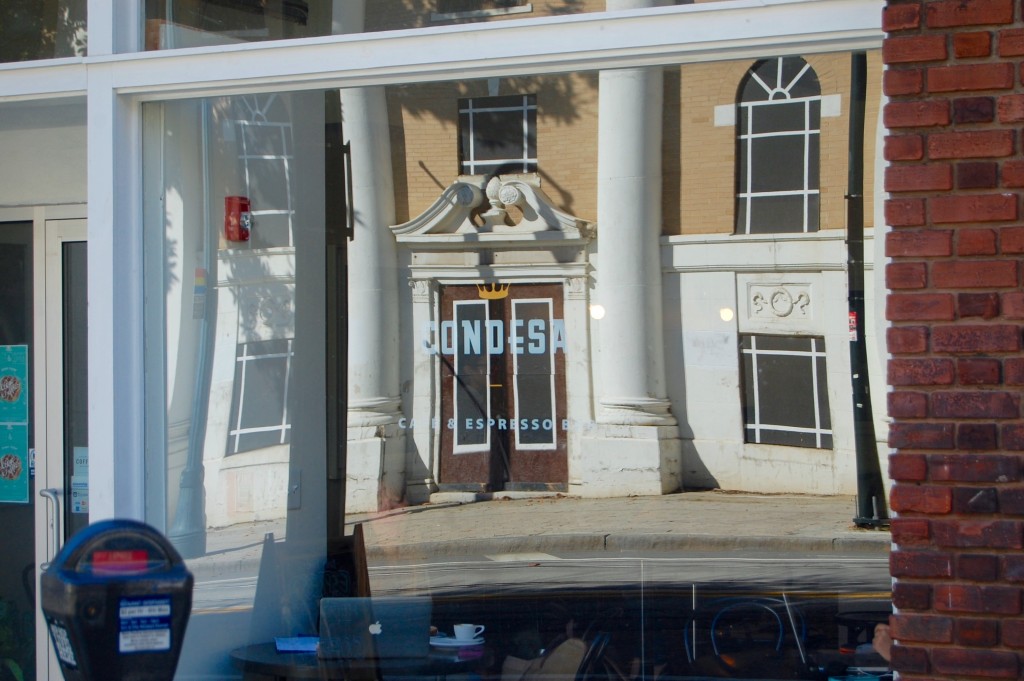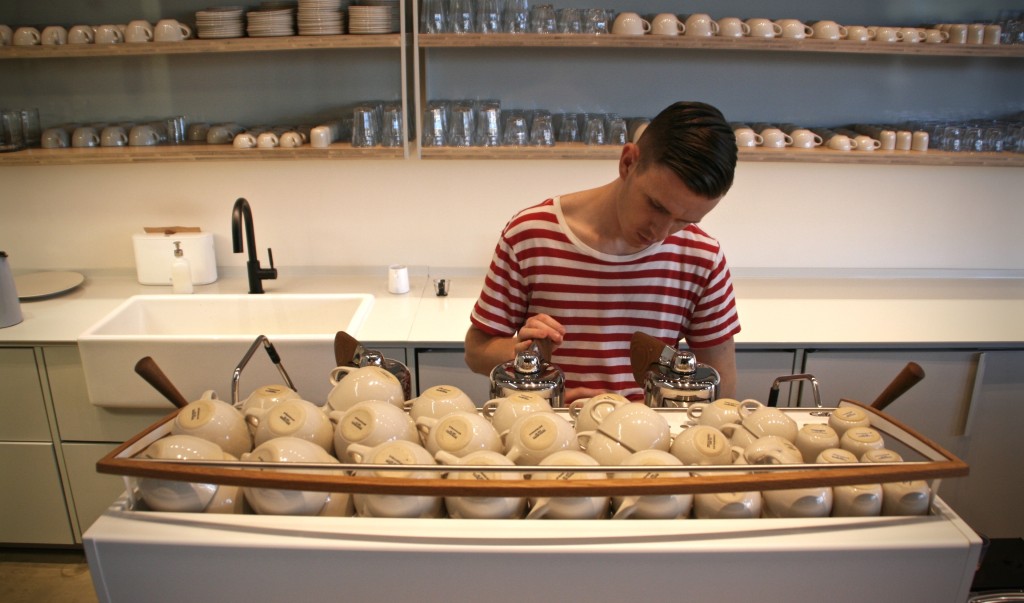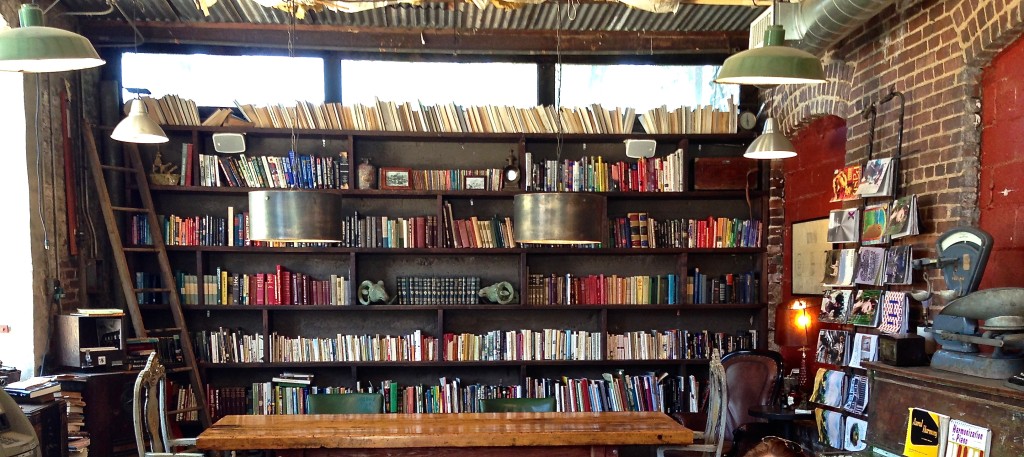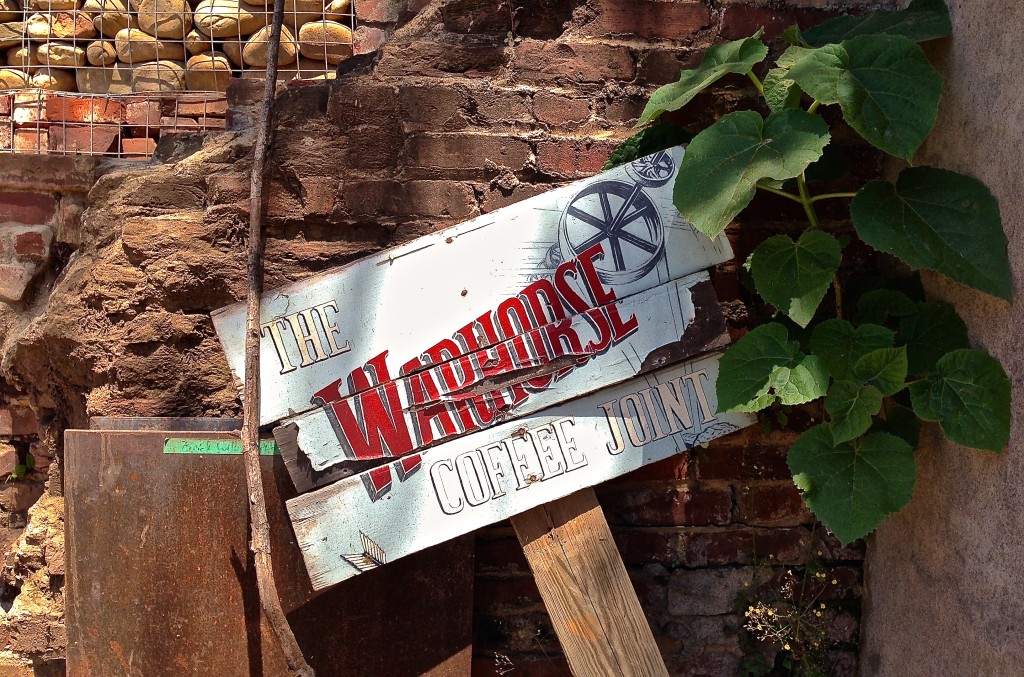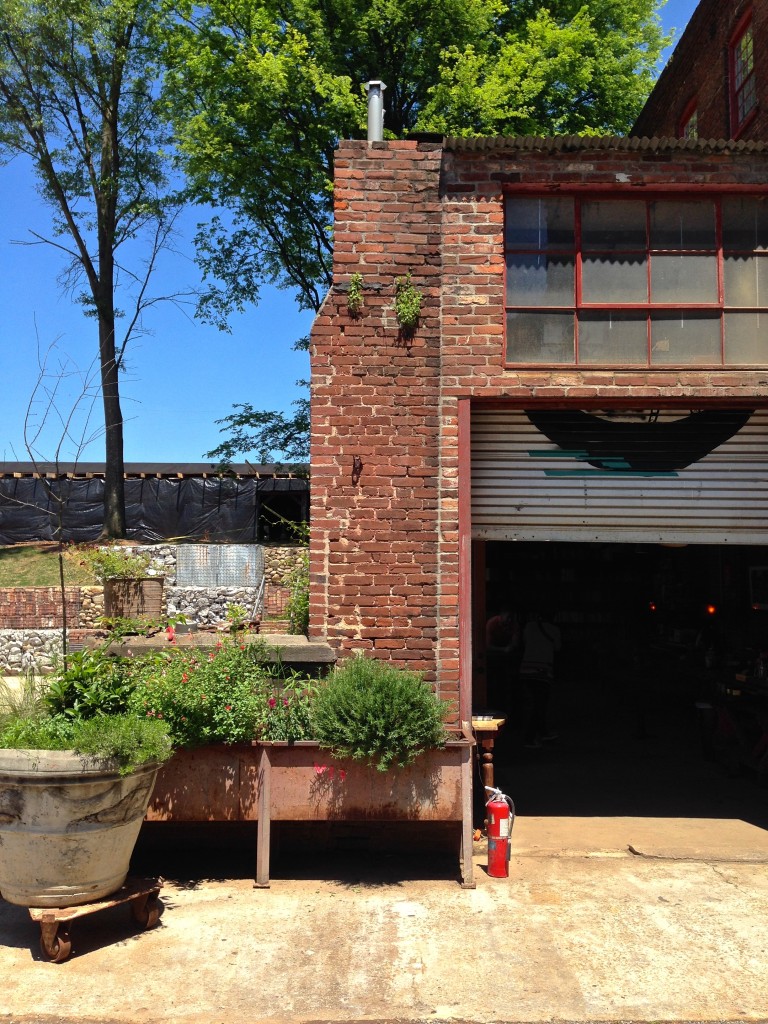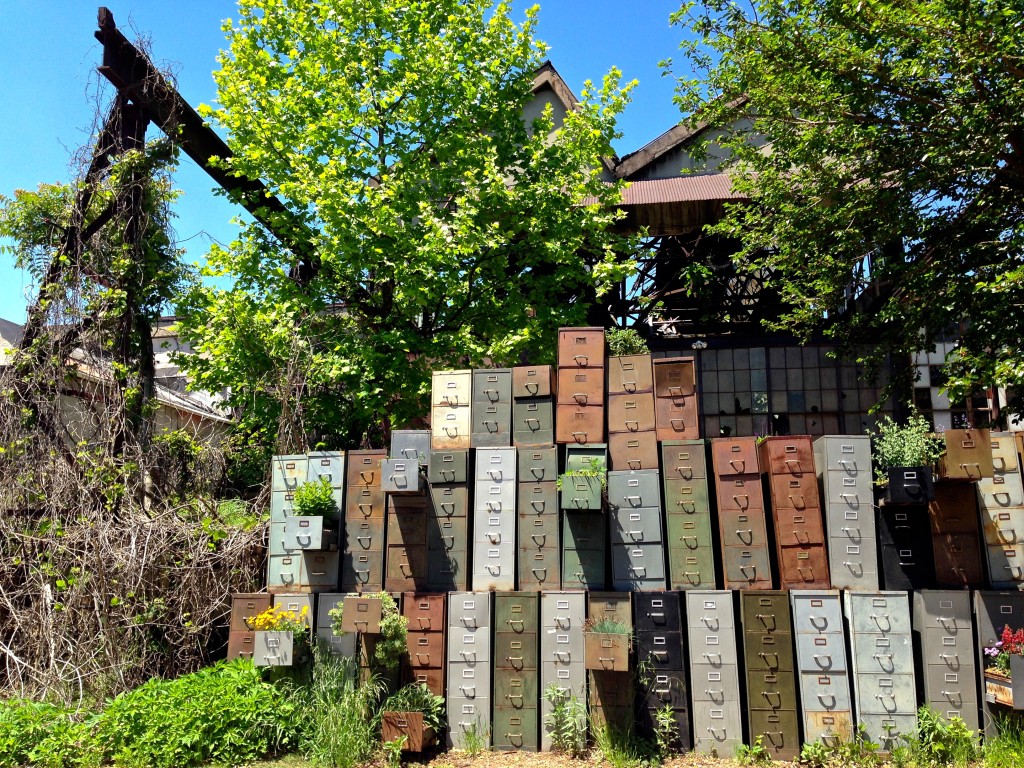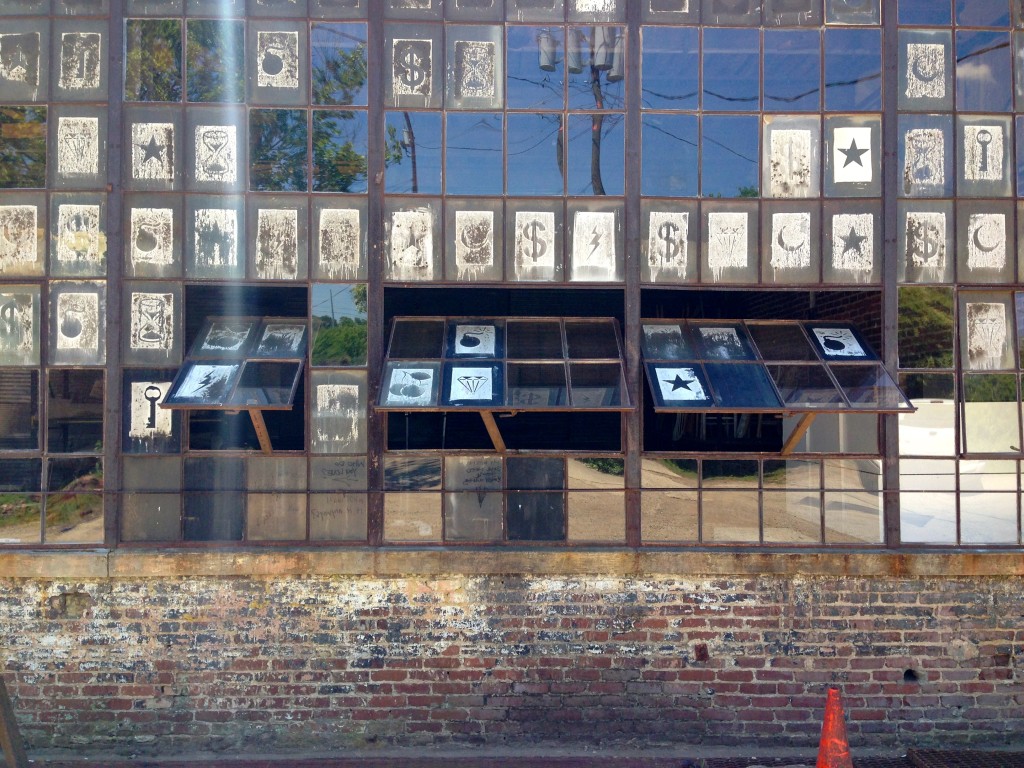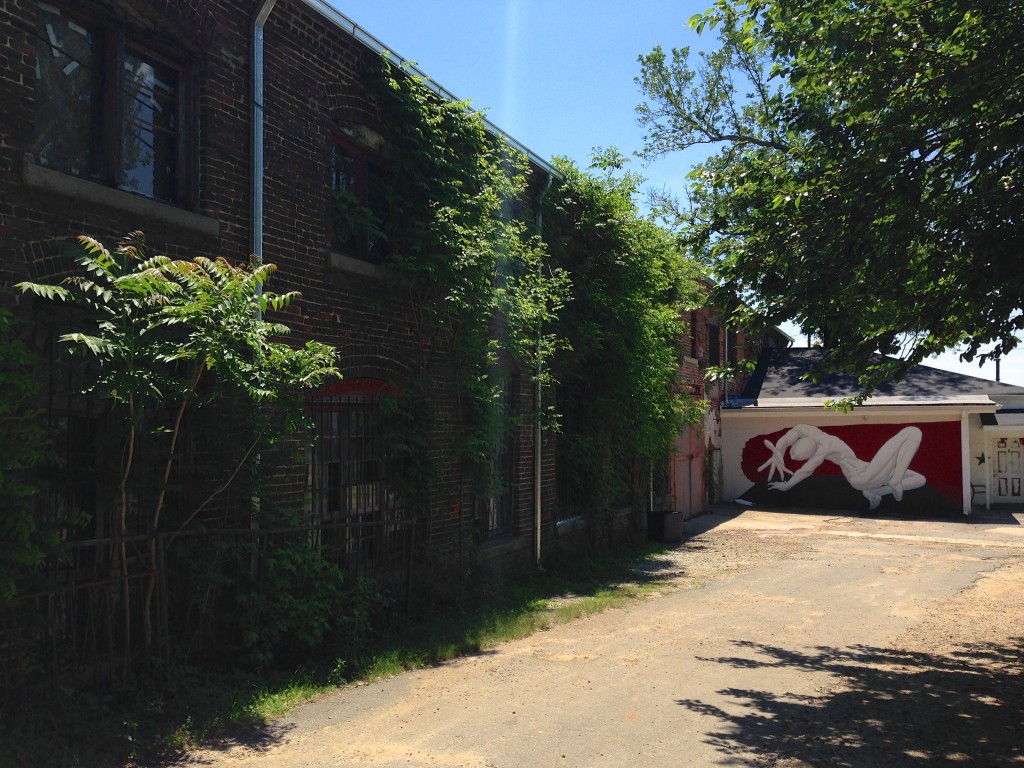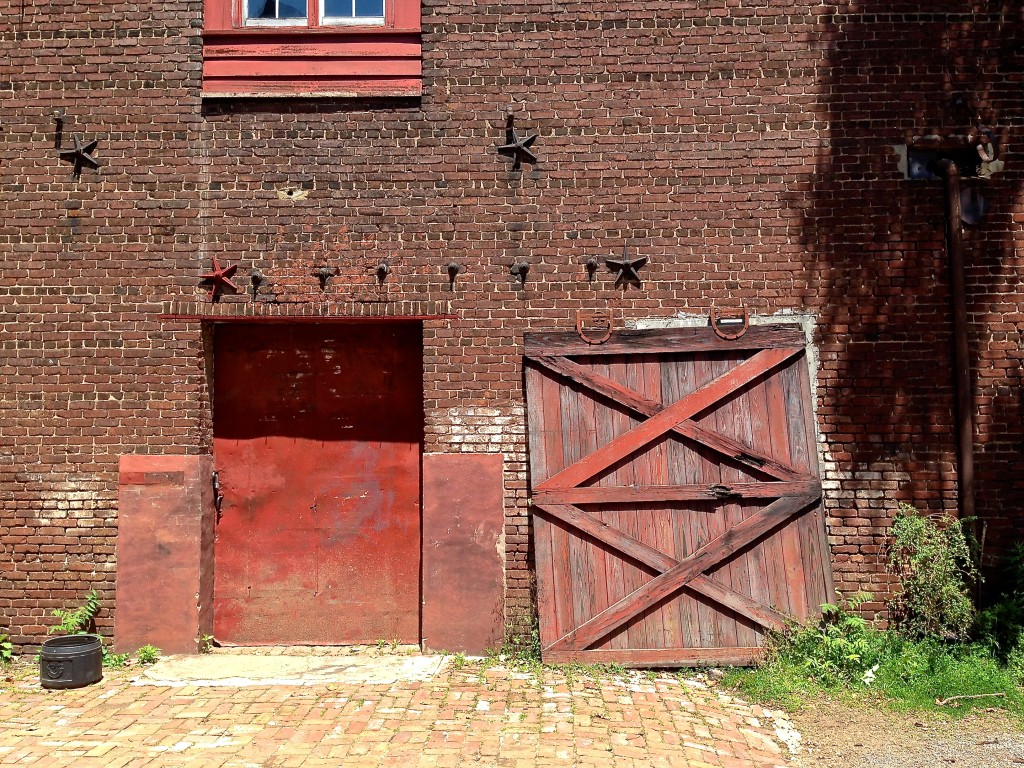I kinda love Spiller Park Coffee. The cheesy baseball theme, the friendly faces, the rockin’ toasts, and, of course, the excellent coffee and espresso. And now there’s more to love. Spiller Park just opened its second outpost in the mid-renovation Toco Hills shopping-mega-corner at LaVista and North Druid Hills, joining the Ponce City Market location in what may become a hometown hero coffee chain. Owner/partners Hugh Acheson and Dale Donchey tell me there are plans in the works to bring even more Spiller Parks to the fine people of Atlanta over the next few years. I ain’t complaining.
I visited the new Spiller Park last week as they continued their soft opening, still waiting on new menus, still yet to roll out some new bells and whistles. Sure enough though, the baseball theme was present, the friendly faces were smiling, the toast was rockin’, and the coffee was excellent. Not surprising. What did surprise me was how fantastic Spiller Park’s little corner of Toco Hill is – thanks in part to an awesomely retro shopping center sign and the brilliant decision by someone to keep up the ornamental metal (awning? overhang?) on the stretch of shops right next to Spiller Park (you can just make it out in the photo above, or bask in its glory in closer-up photos below).
Donchey says the Toco Hills vibe was part of the attraction. “They wanted to preserve as much [of the Toco Hills shopping center] as possible, but the ornamental metal had gotten really brittle… that’s the last of it. That’s part of what makes the Toco Hill location so special to me – it’s another old place in Atlanta that just gets driven by, when it has such a great neighborhood attached to it, has history, and has so many stories to tell. Seemed like a no-brainer follow-up to Ponce City Market.”
Here are six things (and a few more photos) to get you to over to Toco Hill for your coffee and toast.
1. Awesome toast. And other simplish things to eat. Toast does not need avocado, although I won’t be upset if you choose Spiller Park’s version of avocado toast. Just peep this Nutter ‘N Fig Toast on super-good General Muir rye bread. Donchey says, “the food will expand at Toco into providing house made muffins, waffles, salads, shakshuka, and whatever other clean, simplish, crazy things we can come up with. We’d like to be known as a place to get a great, delicious light bite and coffee or tea.”
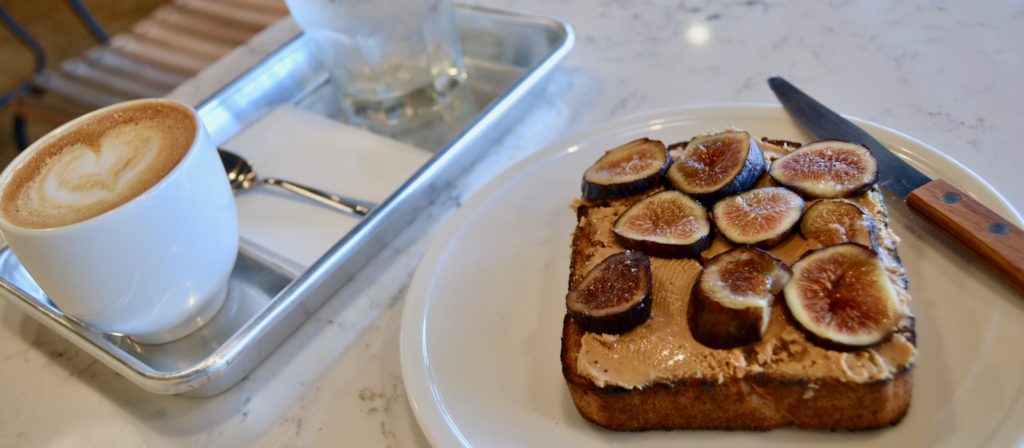
2. Baseball mitt koozies. And hot coffee. “We’ll be running different single origin coffees out of each space [Ponce City Market and Toco Hill],” says Donchey, “as well as a siphon brewing option. I liked the idea of being able to put both Spiller Parks on a coffee crawl and walk away with different drinking experiences.” This past week, there were several varieties from both George Howell Coffee and Intelligentsia, but they will be rotating in other roasters as well.
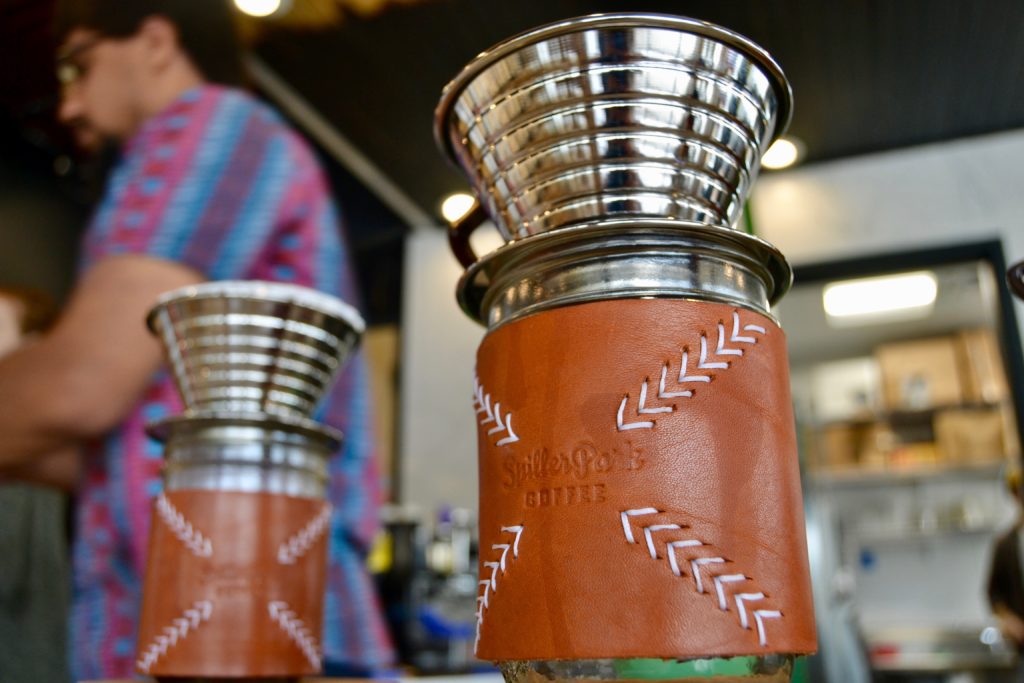
3. Vintage accessories. As I grabbed some sugar, I talked to a random guy about Stanley thermos styles for way too long. This one wasn’t sufficiently vintage for him, but plenty good by me.
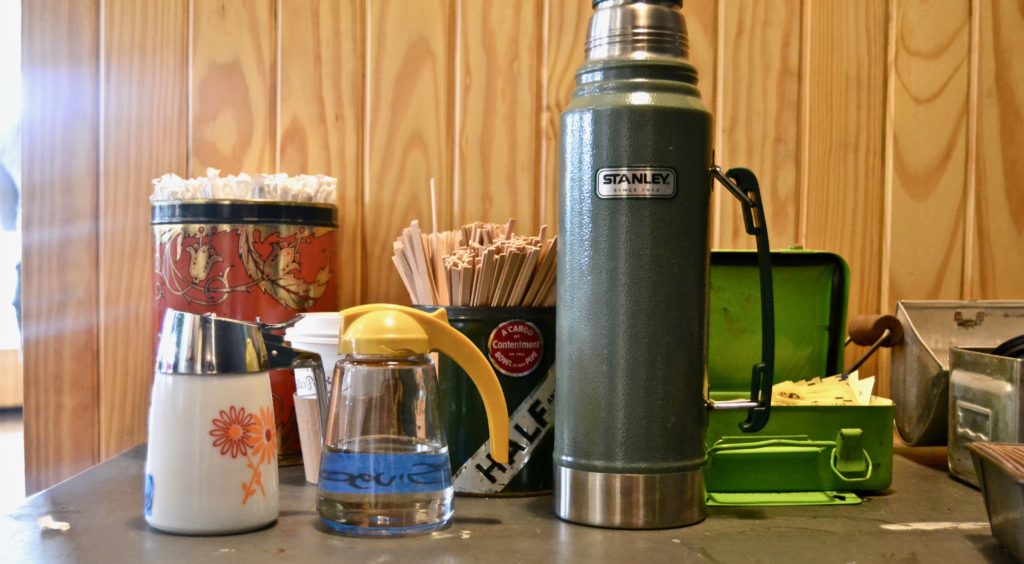
4. Rainbow bright chairs and plentiful daylight. It’s nice to sit outside, isn’t it? Even on the somewhat dreary, post-Irma, still-no-power day this shot was taken.
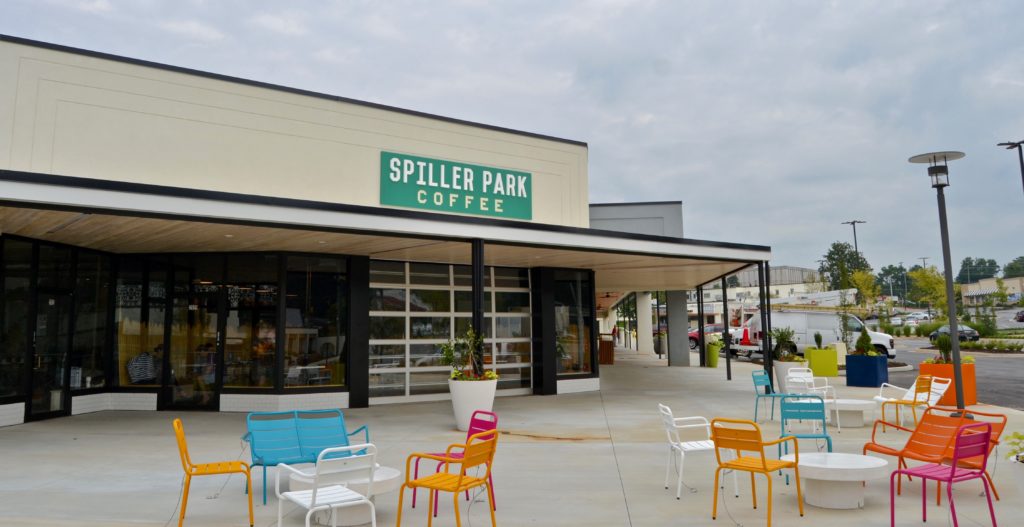
5. Baseball cards. Lots of baseball cards. Did you know Spiller Park (AKA Ponce de Leon Park, AKA Spiller Field) was the home field for the Atlanta minor league baseball team for most of the 20th century? Now you know.
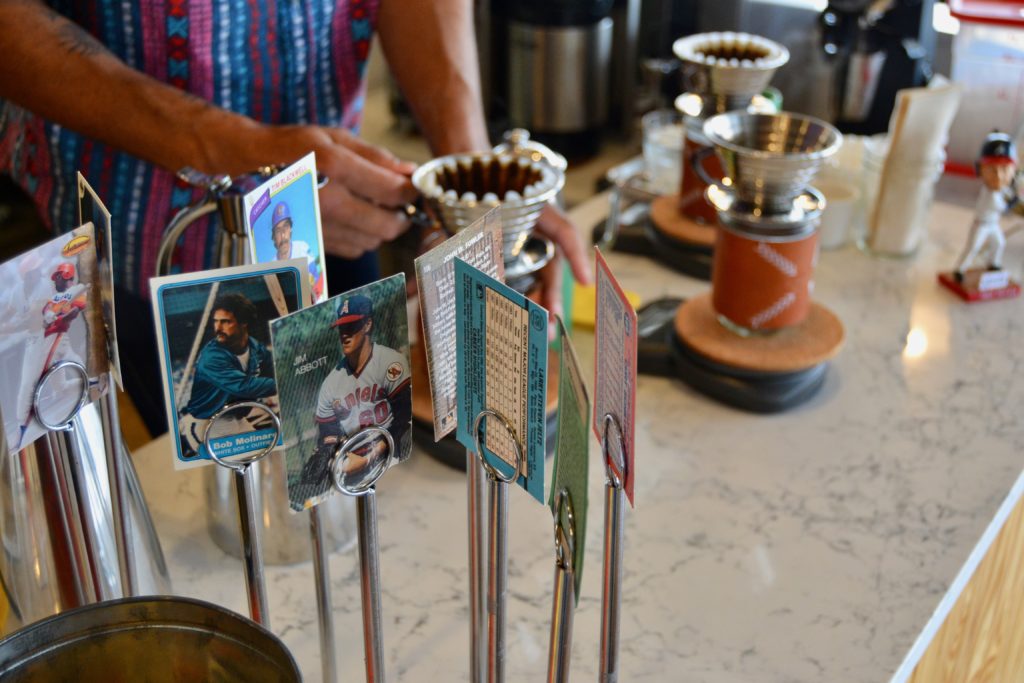
6. Those awesome ornamental metal touches. The camera loves them.
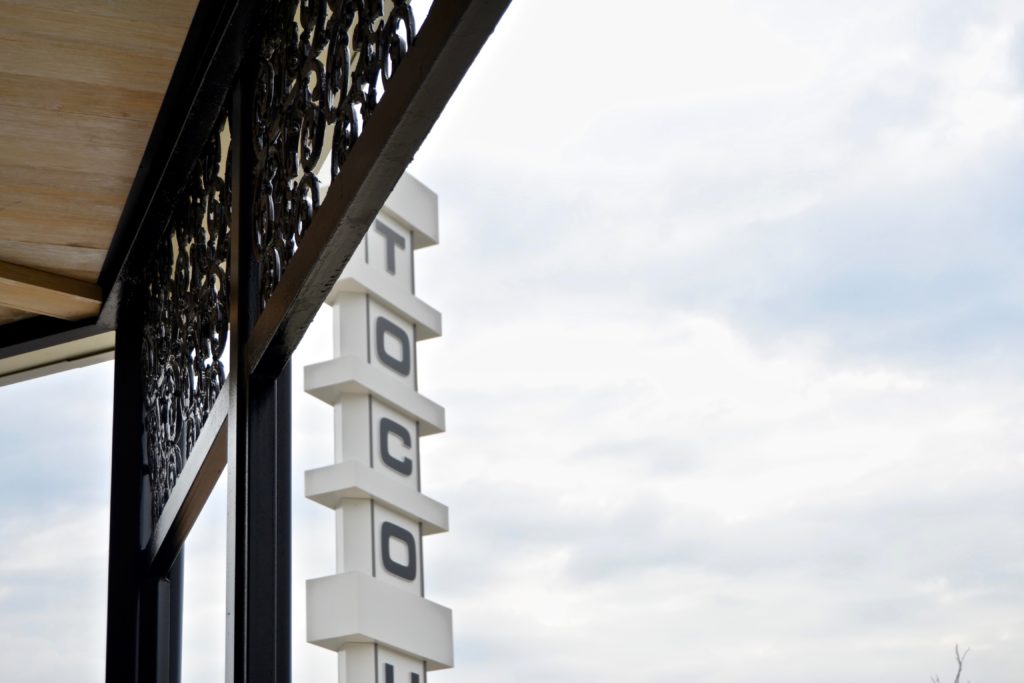

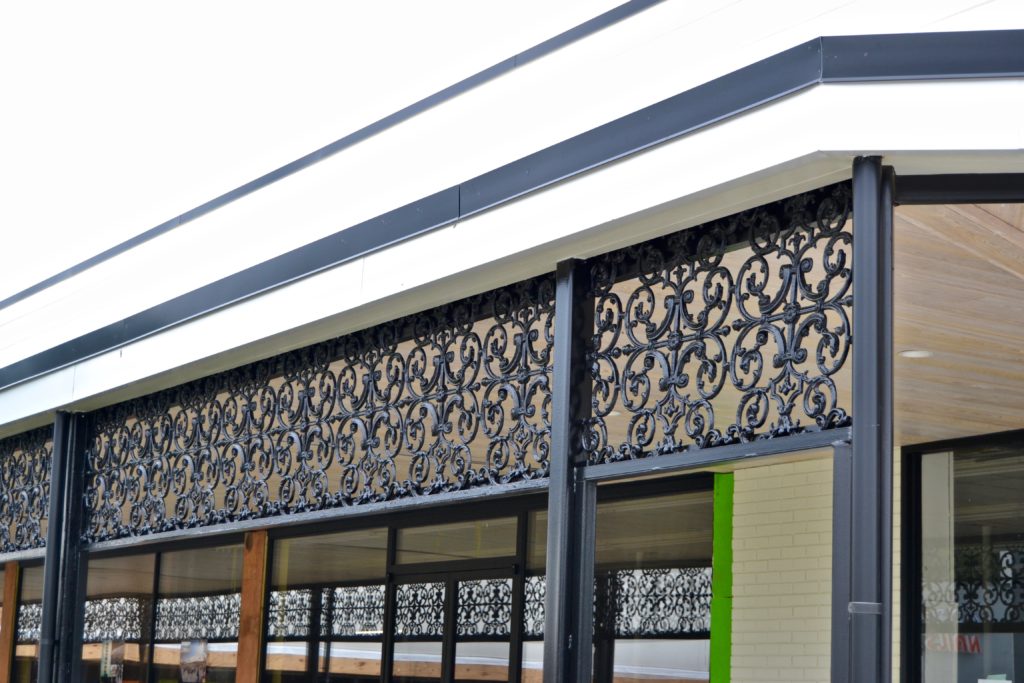
Spiller Park Toco Hill
2929 N. Druid Hills Rd.
7AM – 7PM daily
